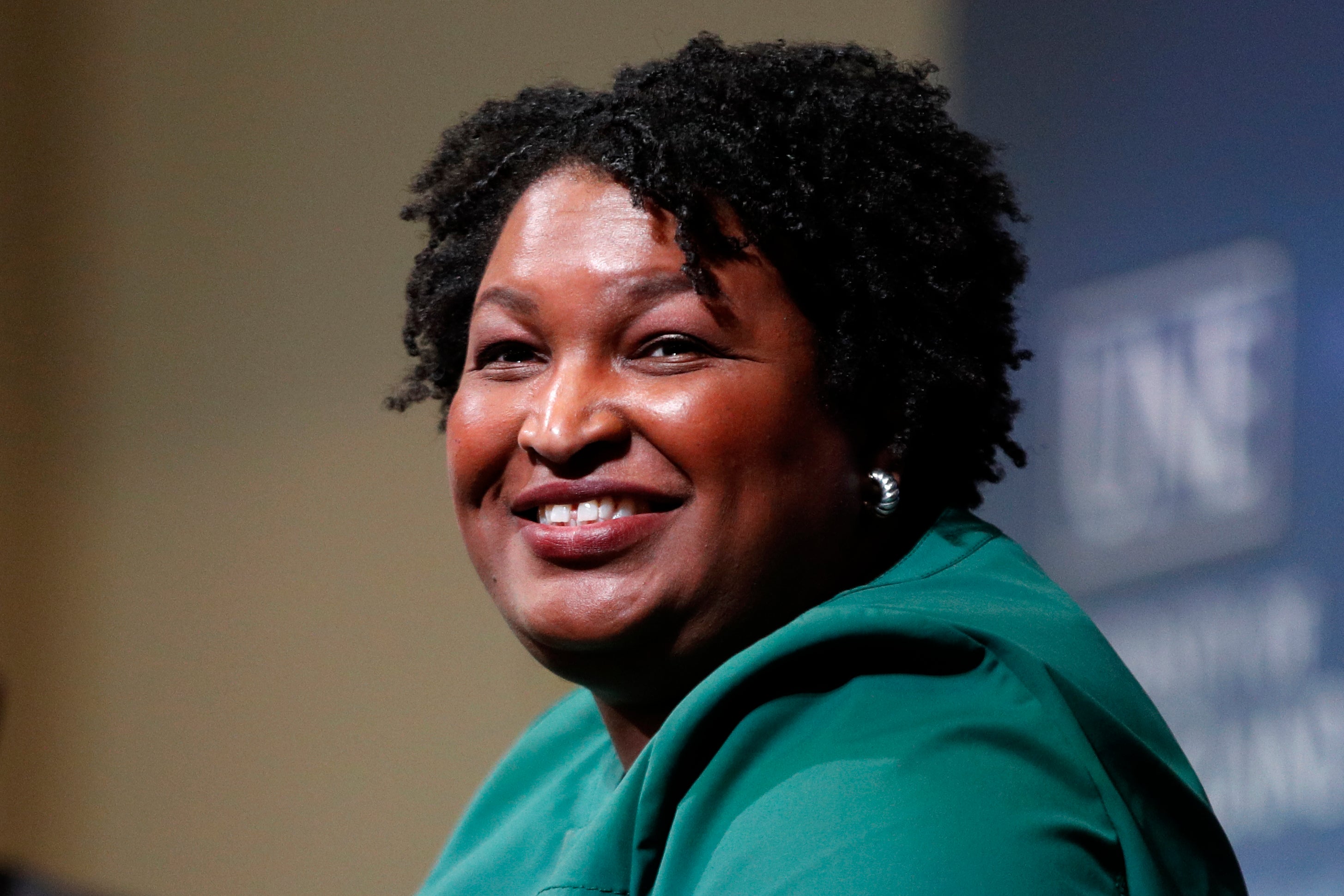Stacey Abrams says she ‘absolutely’ plans to run for president
She also said she’s worried about the “big lie” that Republicans are using to justify voting rights restrictions

Your support helps us to tell the story
From reproductive rights to climate change to Big Tech, The Independent is on the ground when the story is developing. Whether it's investigating the financials of Elon Musk's pro-Trump PAC or producing our latest documentary, 'The A Word', which shines a light on the American women fighting for reproductive rights, we know how important it is to parse out the facts from the messaging.
At such a critical moment in US history, we need reporters on the ground. Your donation allows us to keep sending journalists to speak to both sides of the story.
The Independent is trusted by Americans across the entire political spectrum. And unlike many other quality news outlets, we choose not to lock Americans out of our reporting and analysis with paywalls. We believe quality journalism should be available to everyone, paid for by those who can afford it.
Your support makes all the difference.Many Democrats have already credited voting rights activist Stacey Abrams for helping the party get a landmark win in Georgia during the 2020 election, and now Ms Abrams has her sights on an even bigger victory than flipping a reliably red state: she says she “absolutely” wants to run for president one day.
"Do I hold it as an ambition? Absolutely," she told CBS Sunday Morning, in an interview airing tomorrow. "And even more importantly, when someone asks me if that’s my ambition, I have a responsibility to say ‘Yes,’ for every young woman, every person of color, who sees me and decides what they’re capable of based on what I think I am capable of."
"It’s about, you cannot have those things you refuse to dream of," she added.
She also slammed Republicans for pushing what she called a “big lie” about voter fraud, an essentially non-existent phenomenon, to enact new voting restrictions that end up disenfranchising people of colour, which she said was a tacit endorsement of those who stormed the Capitol to overturn the legitimate election results.
“They’ve had the luxury of not having to think about it,” she said. “They have had the luxury of simply seeing voting laws as ways to win, but when you’ve experienced those or when you’ve had to fight against those, or when you’ve given it more than a few moments thought, when you strip away the hyperbole or the pretences and you go to the direct connective tissue of it, absolutely, that’ what’s being said. In every state capitol where they use the big lie to justify that behaviour.”
Ms Abrams, whose voting initiative Fair Fight is credited with bringing hundreds of thousands of voters into Georgia elections, is beloved within the Democratic party.
“You get what you organise for,” representative Ilhan Omar wrote of Abrams after the election, which saw a surge of Black turnout propel Georgia’s first Democrats to the Senate in decades – and its first Black senator ever. “The brilliant @staceyabrams knew that and we are all grateful for it.”
Ms Abrams was considered a top candidate to be Joe Biden’s vice-president. Though he eventually selected Kamala Harris, the president later said Ms Abrams is “amazing” and “can be anything she wants to be – from whatever she chooses to president”.
In the mean time, a top priority for Abrams and her fellow Democrats is expanding the franchise, as Republicans across the country continue pursuing a range of voting restrictions.
The GOP has launched a huge variety of new voting restrictions since 2013, after the conservative-controlled Supreme Court struck down the “pre-clearance” provision of the Voting Rights Act, which allowed the federal government to scrutinize new voting rules in places with a history of disenfranchising people, often Southern states with a legacy of Jim Crow provisions keeping Black people from voting.
This fight has taken on new urgency during the pandemic, where many Democratic states temporarily expanding access to systems like early and mail-in voting during the pandemic. Republicans have introduced more than 200 bills across 43 states, including Ms Abram’s home state Georgia, that would place restrictions on voting in one analysis called “the most sweeping contraction of ballot access in the United States since the end of Reconstruction, when Southern states curtailed the voting rights of formerly enslaved Black men.”
Democrats have sought to reverse this trend in Congress, pushing for the For The People Act, which would massively expand the franchise with automatic voter registration and other provisions, as well the narrower John Lewis Voting Rights Act, which would reinstate “pre-clearance,” though neither measure is likely to make it through the evenly divided Senate unless Democrats go through with their polarising effort to eliminate the filibuster.
Join our commenting forum
Join thought-provoking conversations, follow other Independent readers and see their replies
Comments